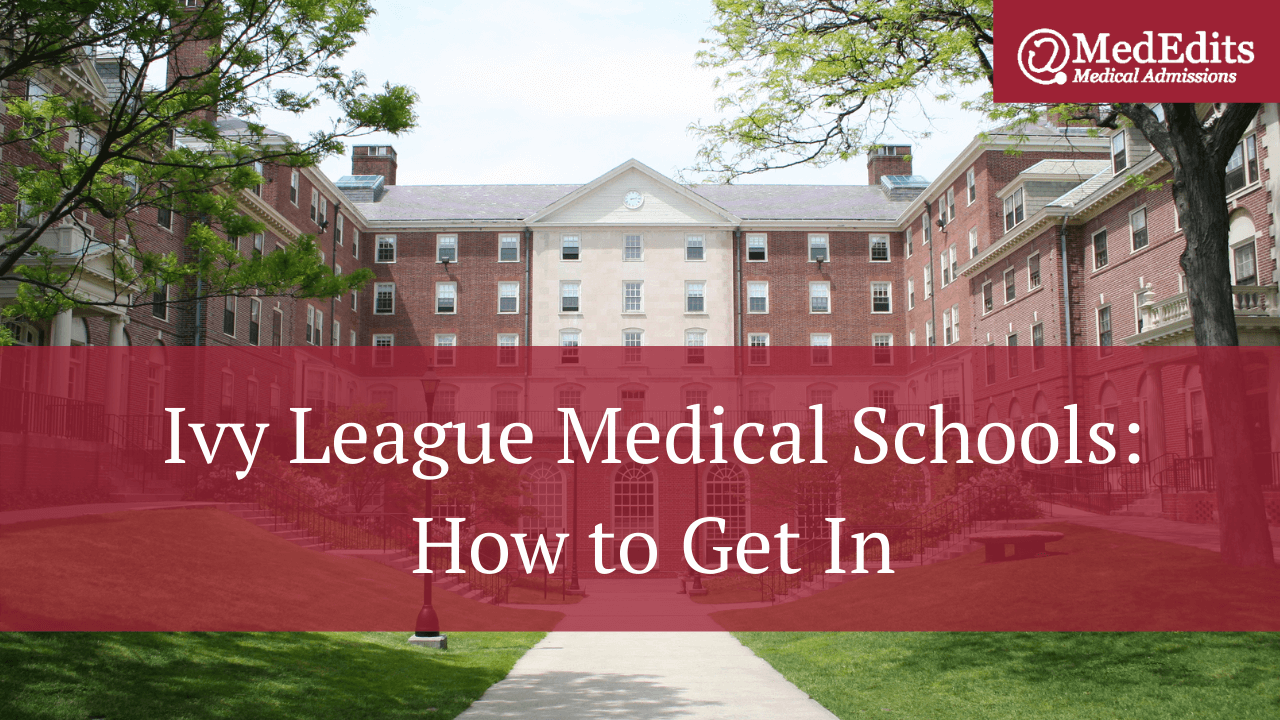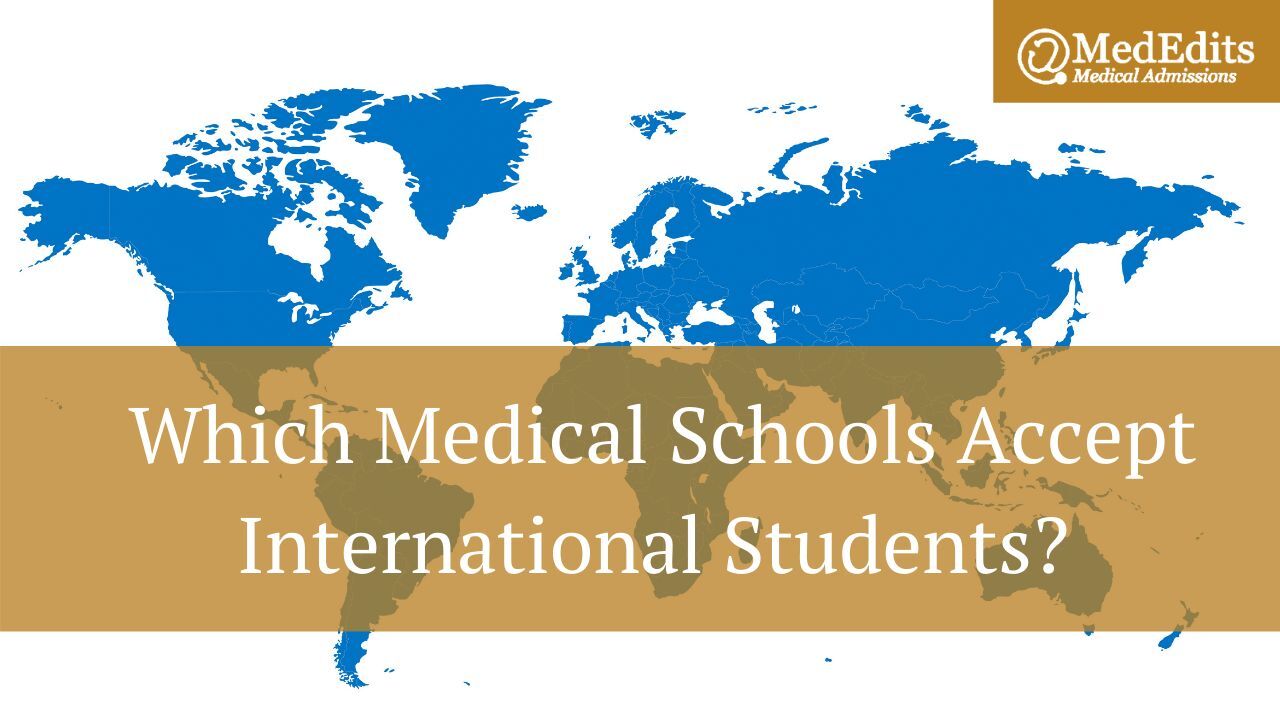
Ivy League Medical Schools: How to Get In (2024-2025)
When it comes to the Ivy League, undergraduate admissions tends to get all the attention. However, if you dream of becoming a doctor, attending an Ivy League medical school may be a step on your journey.
Among the schools comprising the Ivy League, only Princeton doesn’t have a medical school. That means future physicians can choose from the following prestigious institutions: Cornell, Columbia, Harvard, Dartmouth, Yale, Brown, and the University of Pennsylvania. According to US News & World Report, all seven of these schools rank in the nation’s top 50 medical schools, with five ranking in the top 10. Two ivy league schools, Geisel and Brown, are not listed in the top 20 medical schools.
It’s no secret that Ivy League medical schools have strict admissions standards. While average grades and test scores at these institutions tend to be on the high side, that doesn’t mean only a certain type of student will gain entry.
In fact, admissions committees look for a wide range of applicants from different backgrounds and consider a number of factors, including extracurriculars and personal statements. Keep reading to learn more about each of the medical Ivies and then discover the top tips to increase your odds of acceptance.
List of Ivy League Medical Schools and Rankings
Each of the seven Ivy League medical schools offers unique attributes and advantages for accepted students that can help launch their careers in medicine. Keep reading to discover which of these schools may be the best fit for you on your academic journey:
- Weill Cornell Medical School (10): Students looking to earn their medical degrees in New York City may want to consider attending Cornell. Along with boasting a progressive curriculum, the college eschews the traditional lecture format in favor of small-group learning. As a bonus, students get to attend school alongside renowned hospitals like New York-Presbyterian Hospital and Memorial Sloan Kettering Cancer Center.
- Perelman School of Medicine at the University of Pennsylvania (3): The country’s oldest medical school, Penn Medicine prides itself on graduating an impressive group of alumni who went on to develop some of the most important medical advancements of all time. While the institution does have high standards for grades and test scores, applicants can increase their odds of admission by submitting strong supplemental essays and other application materials.
- Harvard Medical School (1): As of the 2024 rankings, Harvard tops the list of best medical schools in the U.S. In particular, the institution is known for its clinical and research opportunities. However, prospective attendees should be aware that the acceptance rate is low, and applicants have to find unique ways of standing out from the pool. .
- Geisel School of Medicine at Dartmouth (48): A combination of research and clinical opportunities await students at this New Hampshire institution. One of the country’s oldest medical schools, Dartmouth also holds the distinction of being the university to develop the first clinical X-ray and the first stethoscope.
- Brown University’s Warren Alpert Medical School (35): Students seeking a progressive curriculum may want to apply to this Rhode Island medical school. Along with offering integrated science courses, the school provides instruction in both clinical skills and professional development. Students can also take advantage of the school’s opportunities for independent study. Keep in mind that about 40% of students come from Brown’s BS/MD program.
- Yale School of Medicine (10): It’s no surprise that Yale offers a tremendous medical school. One of the benefits of attending this institution is that you can earn a joint MD/PhD degree – in fact, 20 percent of students participate in this program. Because admissions standards are strict, aspiring doctors should focus on their secondary essays in order to stand out from the crowd.
- Columbia University Vagelos College of Physicians and Surgeons (4): Also known as VP&S, this school strives to provide students with a transformative education while emphasizing the importance of compassion in patient care. Additionally, students benefit from the opportunity to study with an internationally renowned faculty.
How to Get Into an Ivy League Medical School
There’s no one right answer when it comes to gaining acceptance to the medical Ivies. However, students can boost their chances of success by seeking to create the strongest possible applicant profile. Here are some tips for standing out to these top schools:
Focus on Test Scores
It’s no secret that grades and MCAT scores are a crucial component of your medical school application profile. While Ivy League medical schools don’t typically have a cut-off for GPA and testing, if your scores aren’t meeting the school averages, there’s a good chance you won’t be accepted.
For this reason, applicants who are passionate about attending an Ivy should take steps to improve their marks. For example, you may want to consider academic enhancement or sign up for an MCAT prep course before retaking the exam.
Read: Should I Retake the MCAT?
Expand Your Extracurricular Horizons
Of course, getting into medical school isn’t just about grades and test scores. The most competitive students also boast a robust history of extracurricular involvement. In particular, students looking to get into an Ivy should choose activities that demonstrate a passion for becoming a doctor and helping others.
Approximately 90 percent of the people accepted to an Ivy League medical school boast experience working in a lab or research setting. While you don’t necessarily need shadowing experience to get into a top college, it might help bolster your chances of success.
Watch: Extracurriculars for Medical School
Read: GPA and MCAT for Every Medical School in the U.S.
Improve Your Essays
Essays and personal statements offer students the opportunity to speak directly to admissions committees and tell their unique story. In particular, these statements are crucial for Ivy League medical schools, where applicants need to find a way of distinguishing themselves from the pack.
One mistake students often make is submitting an essay that’s just a list of qualities and qualifications. If you want to catch the attention of an adcom, strive to tell a story that showcases your journey to medical school. When in doubt, look for events or situations that enabled you to demonstrate the qualities you’ll use as a doctor. For example, you could talk about a family trip or volunteer opportunity that inspired you to help others.
Ask for the best Letters of Recommendation
Whether you’re applying to schools or going out for jobs, recommendations play a crucial role in the outcome. If your goal is to attend an Ivy League medical school, you should start accumulating recommendation letters early in the process. Requirements vary by college, but it’s a good idea to submit as many letters as the school allows.
Additionally, applicants should reach out to a variety of writers, including science and non-science faculty at their undergraduate institutions, research project heads, volunteer supervisors, employers, and even athletic coaches. You want to ensure letters showcase not only your academic and extracurricular achievements but also your character and goals for the future.
/about_mega.jpg)
Jessica Freedman, M.D.
Jessica Freedman, M.D., is a board-certified emergency physician, former faculty member, medical school admissions committee member, and Associate Residency Director at the Icahn School of Medicine at Mount Sinai. She is the founder and chair of MedEdits Medical Admissions. Since 2007, she has helped thousands of students navigate the medical school admissions and residency match processes, with more than 95% of comprehensive clients gaining acceptance. She is the author of four books on medical admissions and host of The Oath podcast.

Medical School Admissions 2024 Trends
Medical School Admissions 2024 Trends As we move into 2025, and we start hearing from applicants getting ready to apply to medical school in the...
/about_mega.jpg?width=500&height=500&name=about_mega.jpg)

